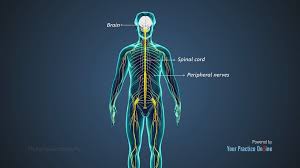Neurological disorders encompass a wide range of conditions that affect the brain, spinal cord, and nerves. Understanding these disorders is crucial for identifying symptoms early, seeking appropriate treatment, and improving quality of life. In this article, we will explore the definition of neurological disorders, common symptoms, and the importance of suitable footwear in managing these conditions.
What Are Neurological Disorders?
Neurological disorders are medical conditions that interfere with the normal functioning of the nervous system. This system is a complex network responsible for sending signals between the brain and the rest of the body. When these signals are disrupted, it can lead to various health issues.
Neurological Disorder Definition
A neurological disorder is a disease of the central and peripheral nervous systems. This includes the brain, spinal cord, cranial nerves, peripheral nerves, nerve roots, autonomic nervous system, neuromuscular junction, and muscles.
Chronic Neurological Conditions Meaning
Chronic neurological conditions refer to long-lasting, often progressive disorders that affect the nervous system. These conditions can significantly impact daily life and may require ongoing management and treatment.
Common Neurological Disorders
There are numerous neurological disorders, each with unique symptoms and challenges. Here, we discuss some of the most prevalent ones.
Alzheimer's Disease
Alzheimer's disease is a progressive brain disorder that slowly destroys memory and thinking skills. It is the most common cause of dementia among older adults.
Parkinson's Disease
Parkinson's disease is a movement disorder that affects the ability to control movement. Symptoms may include tremors, stiffness, and difficulty with balance and coordination.
Epilepsy
Epilepsy is a disorder characterised by recurrent, unprovoked seizures. It is one of the most common neurological disorders worldwide.
Multiple Sclerosis (MS)
Multiple sclerosis is a chronic condition that affects the central nervous system. It can cause a wide range of symptoms, including fatigue, vision problems, and mobility issues.
Stroke
A stroke occurs when blood flow to a part of the brain is interrupted, leading to brain cell damage. Symptoms can include sudden numbness, confusion, trouble speaking, and loss of balance.
Early Symptoms of Neurological Disorders
Recognising the early signs of neurological disorders can lead to timely diagnosis and treatment. Here are some common early symptoms to watch for:
-
Persistent headaches
-
Tingling or numbness
-
Weakness or loss of strength
-
Sudden vision changes
-
Memory problems
-
Unexplained pain
-
Difficulty with coordination or balance
 Neurological Impairment and Its Impact
Neurological Impairment and Its Impact
Neurological impairment refers to the dysfunction of the nervous system. This can lead to physical, cognitive, and emotional challenges, affecting a person's ability to perform everyday activities.
Neurological Signs
Neurological signs are clinical indicators that suggest the presence of a neurological disorder. They may include abnormal reflexes, muscle weakness, and changes in sensation.
The Role of Footwear in Managing Neurological Disorders
Footwear plays an essential role in managing symptoms and improving the quality of life for individuals with neurological disorders. Proper shoes can provide support, stability, and comfort, reducing the risk of falls and injuries.
Neuropathy Shoes
Neuropathy shoes are specially designed footwear for individuals with peripheral neuropathy, a condition that causes nerve damage in the feet and legs. These shoes offer extra cushioning and support to alleviate pain and prevent further damage.
Importance of Proper Footwear
Wearing the right shoes can help prevent complications associated with neurological disorders. Shoes should have a good fit, provide adequate arch support, and have a non-slip sole to ensure safety and comfort.
Neurological Disorders in Hindi
For those seeking information in Hindi, neurological disorders are known as "तंत्रिका विकार" (Tanikra Vikar). Understanding these conditions in one's native language can facilitate better comprehension and access to healthcare resources.
Conclusion
Understanding common neurological disorders and their symptoms is vital for early intervention and effective management. Recognising the signs, seeking medical advice, and using appropriate footwear can help individuals lead healthier, more comfortable lives. Remember, if you or someone you know is experiencing symptoms of a neurological disorder, it is essential to consult a healthcare professional for a proper diagnosis and treatment plan.
By staying informed, we can better support those affected by neurological disorders and work towards improving their quality of life.








